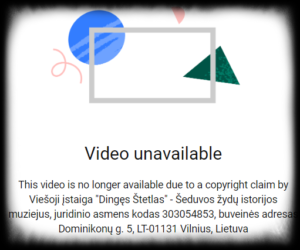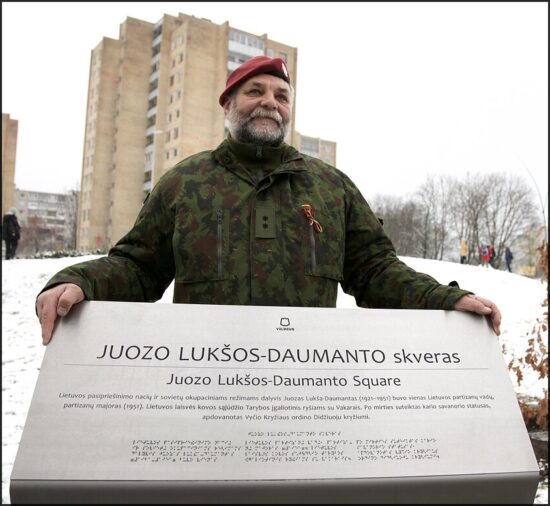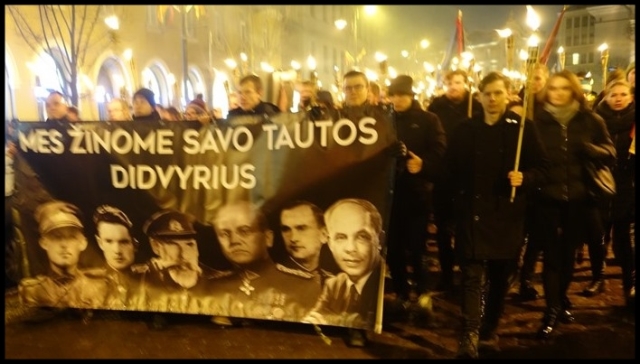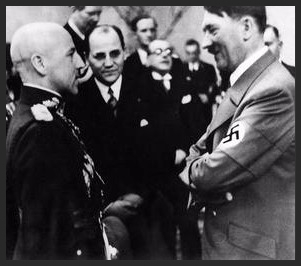◊
VILNIUS—The Lithuanian Yiddish Video Archive (LYVA), a Defending History affiliated project, providing hundreds of Yiddish language video interviews in the “Lithuanian lands” (today’s Belarus, Latvia, Lithuania, eastern Ukraine and northeastern Poland), conducted from 1990 to 2020 has just released a Holocaust-history extract from a longer interview, conducted in May 2000 in Šeduva, northern Lithuania, with the town’s last Yiddish speaker, the Christian Lithuanian native of the town, the late Elena Rimdžiūtė. As is evident from the clip, the interviewer, Dovid Katz, was focused on Elena’s Yiddish folksongs, and the Holocaust arises, at first tangentially, when Elena speaks of her friends who are no more.
The clip on Youtube is accompanied by a draft English translation (in the “Description Box”). This remarkable woman’s honesty, integrity, and desire to Just Tell it Straight, makes for a striking contrast with the current Baltic academic establishment’s claptrap about Prague Declarations, equivalence of totalitarian regimes, tale of two Holocausts, and fairy tales about the “uprising against the Soviets” celebrated in Vilnius’s Genocide Museum (recently renamed), and promoted by the state-sponsored Genocide Center and numerous public shrines to local Holocaust murderers of 1941.
Here is Ms. Rimdžiūtė’s genuine Šeduva Yiddish rendition of the beloved song, where a girl explains that she wants neither new clothes from the tailor nor shoes from the shoemaker but expresses her sadness that all the other girls have boys (altered in the final stanza to ‘get married’). The clip is followed by a draft English translation concluding with a transcription of song in Šeduva Yiddish.
Continue reading



